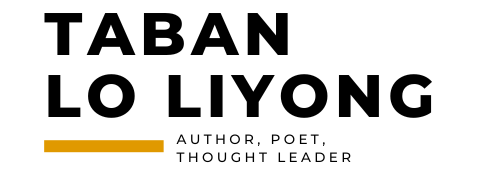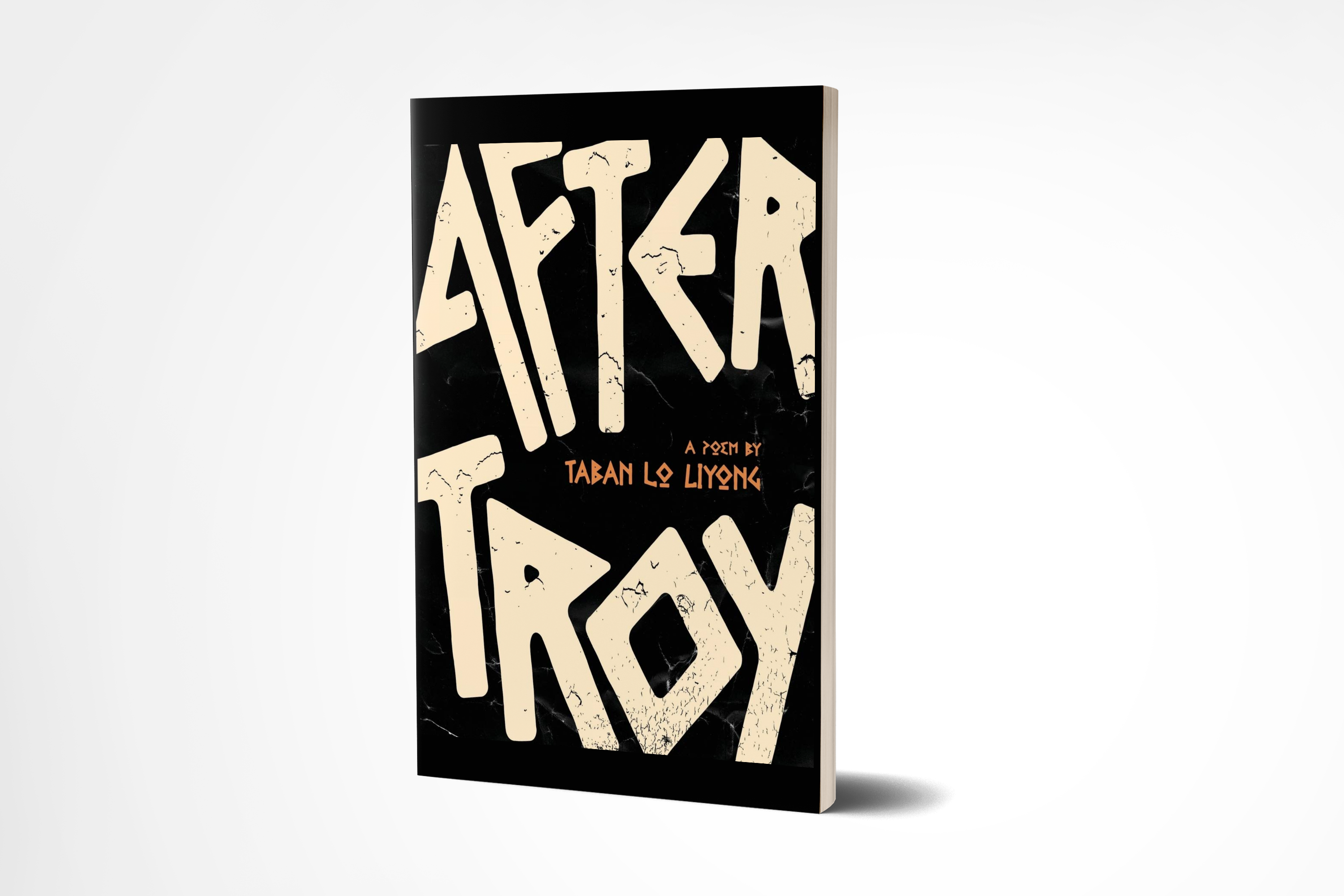A war-hardened general returns home after a twenty-year battle in a foreign land. His return is as emotive as his departure had been. His dog, Argos, is the first to notice his return. Argos is so excited to see his master, again, that he suffers a cardiac arrest and dies!
Odysseus. That is the name of the general. For two decades, there are people who have been awaiting his return –with bated breath. Among these people is his old and bedridden father who ‘refuses’ to let go of life until he returns. Then, there is Penelope, the most beautiful of all women of Odysseus’ time. This woman is Odysseus’ wife. He had gone to the battlefield soon after their marriage, leaving her with the baby boy with whom they had just been blessed. Lastly, there is Telemachus –the boy who was in his infantry when his father left –who has now grown into a man.
It’s after troy –the new season in which Taban Lo Liyong sets After Troy, his latest book. After Troy is a book-length poem. In this poem, Lo Liyong revisits the Trojan War – a battle that was fought on the soils of Troy, a kingdom inhabited by Trojans. The tales of this war are preserved in Greek epics, the most well-known of which are Homer’s the Iliad and the Odyssey.
War and love are critical motifs in After Troy. In fact, so intertwined are the two themes in the poem that neither of them can stand without the other. The Trojan War itself is a flower of love. Paris Alexandro, an amorous prince from Troy visits Sparta. King Menaleus, his host, accords him all the protocol and luxury that goes with royalty. Even though the king is elderly, his wife, Helen, is not only young but also a paragon of beauty. When duty calls, King Menaleus travels to far flung lands within his kingdom, leaving his guest under the charge of the queen. It’s during the absence of the king that Paris breaches the hospitality code to which his people subscribe –he steals Queen Helen’s heart and elopes with her.
This occurrence puts the king’s reputation and honour of the kingdom on the line. To save his face and redeem the standing of his kingdom among other dynasties, King Menaleus launches a military campaign against Trojans, post-haste. The troops are under the command of his brother, Agamemnon. The king’s brief to Agamemnon –the Supreme Commander of his army – is simple. He is to reduce Troy to ashes and recover what belongs to Sparta – his wife Helen, she whose fame is hinged on her unparalleled beauty.
The war rages for ten years in the course of which a number of headwinds plant themselves on Spartan army’s way. At one point, the winds stand still and the voyage comes to a halt. The journey only resumes after Agamemnon, the Supreme Commander of the army, appeases the gods with the blood of his daughter, Igphigeneia. As dictated by the wind god, he murders his daughter with his own hands –slices her body into pieces and throws her limbs into the sea!
By the time the time the Spartan army uses a Trojan horse to get into Troy, destroys it completely and reclaims their queen, ten years have elapsed. Lo Liyong contextualises the Trojan War by revealing to his reader what transpired before and after the war. For avoidance of knowledge regurgitation, he employs the first person point of view throughout the poem. This is his way of ceding the floor to characters whose voices have never been heard since the Trojan War story was first told. In the end, through their reflections, the characters in After Troy, tag the reader along in their interrogation and exploration of the Greek culture, history, and religious and moral philosophy.
After Troy is an advocacy for women’s social consciousness. It is not by chance Penelope is the first voice the reader encounters in this poem. Further, of all the 8 critical characters in the poem, 4 are women. These are manifestations of Lo Liyong’s resolve to strike a gender-based power balance. In the After Troy society that Lo Liyong creates in his book, there is a positive social consciousness shift among women. They are bold enough to even question everybody and everything –their husbands, kings and the Greek gods and goddesses!
By creating characters who are not only reluctant to go to war but also very reflective and philosophical in their qualification of their positions, Lo Liyong adds his voice to global peace advocacy.
In the African context, After Troy offers a glimpse of the psychological turmoil to which war subjects the people. It allows the reader appreciate the worldview of the Kenyan woman whose husband is in the AMISOM peace keeping mission in Somalia. Or her counterpart whose husband recently left for the Democratic Republic of Congo peace keeping assignment. It’s a poem in which in which all the children in the Republic of South Sudan who came of age in a time of war will find echoes of their thoughts.
After Troy questions the necessity of war. War tore Odysseus off from his young family, denied him the chance to husband his wife and raise his son. He wonders why people should go to war over such trivial matters as love. The realisation that it’s time he got his son a bride elicits his lamentations over Igphigeneia’s death. She was her son’s age mate and had her father, Agamemnon, sacrificed her during the war, to appease the wind god, he wouldn’t have hesitated to point his son in her direction.
And of all people, it’s women and children who are most affected in seasons of war. Penelope, Odysseus’ wife has a lot to say. In her poetic monologues, she cries over her wasted youth –the twenty years that have gone by without the company of her husband. She talks of the 20-year warfare between her flesh and heart in which she has been the moderator. There were suitors who had besieged her the entire time, relentlessly shooting arrows at her delicate heart. To keep them at bay, she had sat at her loom, sewing, during the day. She would then undo all her day’s work during the night.
Bringing up her son single-handedly, from infantry to adulthood, is the other pain Penelope talks about. She was the mother who doubled as the father to Telemachus. And now that her husband has returned, she can barely recognize him. She has to subject him to a number of tests to prove that, indeed, it’s him. And over this reunion, hovers the question of Odysseus’ fidelity to their marriage vows, during his twenty-year absence.
There are other monologues but the most critical of them all is Clytemnestra’s – Agamemnon’s stay-at-home-wife who strangles him to death when he returns from the Trojan War. It’s her who strikes the highest note in the Greek women’s revelation of their social consciousness. She murders her husband to avenge her daughter’s death. She questions why the general unilaterally decided to sacrifice their daughter. Besides, she questions the existence of the gods. She loudly wonders how rational the gods are in their judgments.
When her husband, Agamemnon, the Supreme General, leads his troops to the battlefield, she gets into an illicit fling with his cousin. She reasons, that this is the best to get even with a general who is a tiger in the battlefield but a failure at home. By murdering her husband and installing his cousin –her secret lover –as king she claims her space in the books of Greek history.
Later, when Orestes, a just, democratic and diplomatic king ascends to the throne, Spartans acknowledge that it took a woman for their society to change its course.
For more than one reason, After Troy sails against the wind. The cover design is the most prominent announcement of its ‘rebellion’ against the norm. A glance at it calls more questions than answers to one’s mind. The blend of colours and calligraphy perfectly fits the definition of beauty that resides in simplicity. And in its entirety, the poem exemplifies Lo Liyong’s audacious and effective employment of poetic licence –he tosses grammar rules through the window and uses lowercase from the beginning to the end of the poem.
In his afterword to this book, Lo Liyong asks for a big calabash of kwete from Mama Afrika. He wants it frothing hot. He is asks something else of Mama Afrika –that an invitation be sent to the spirits of Okot p’Bitek, Can Themba, Es’kia Mphahlele, Dambudzo Marechera, Amos Tutuola, Chinua Achebe, Aime Cesaire, and Lopold Sedar Senghor. He wants these great sons of Mama Afrika to join him, from the other side, in his celebration of the completion of the daunting task that writing of this book has been.
May Mama Afrika grant Lo Liyong’s wishes. He, sure, deserves a big calabash of kwete!
Side bar
Book title: After Troy
Genre: Poetry
Author: Taban Lo Liyong
Publisher: Deep South
After Troy is split into two, Book 1 and Book 2.
Book 1 is in Homer’s trilogies format.

